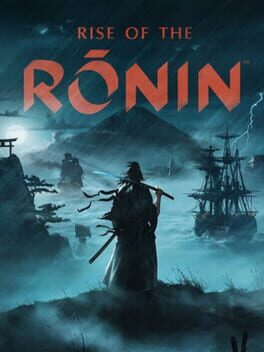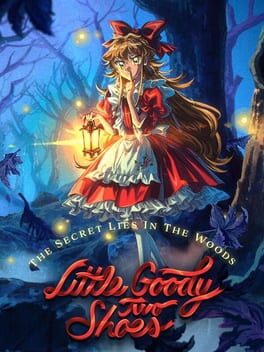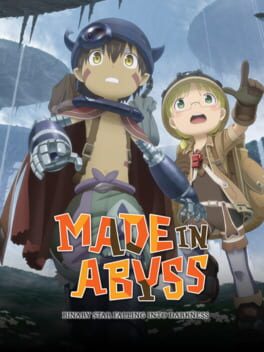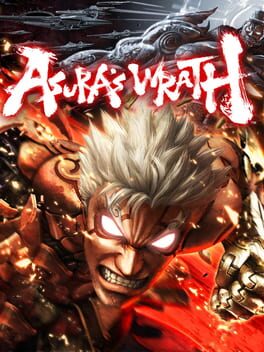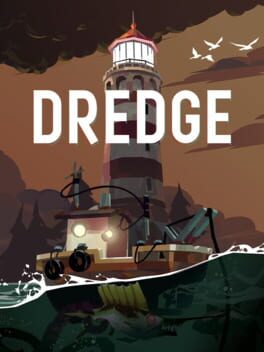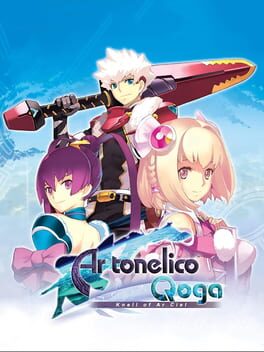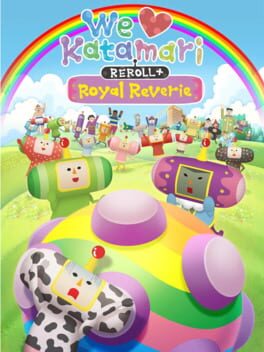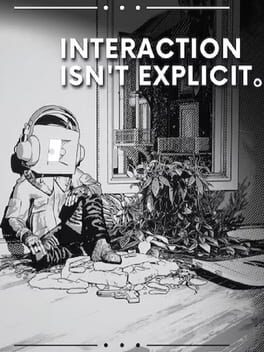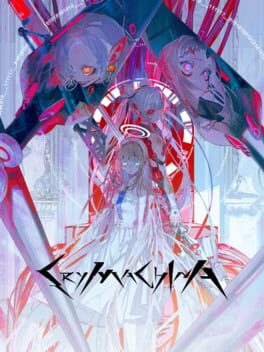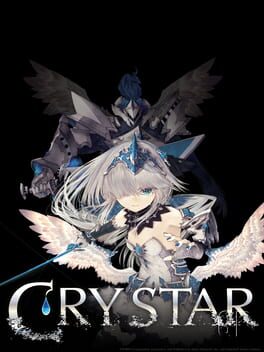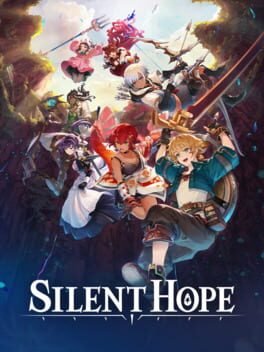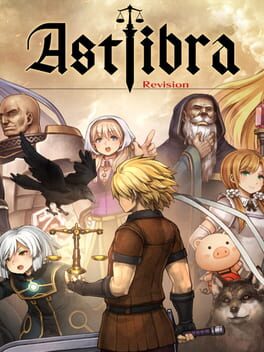SpookSpark
2024
At this point in time the ubislop school of open-world design is simply inexcusable, and is by far the biggest factor in play at making the game feel as bloated as it is.
Still, while it certainly overextends its welcome, Rise of the Ronin is pretty god damn fun to play thanks to its strong spoof in Sekiro's combat system that adds enough of its own identity to keep things interesting. The game however at times feels like a Frankenstein's monster of mechanics tacked on from Team Ninja's previous games: The gear stat system is completely pointless, 90% of the inventory might as well not be there, etc. Still, none of its mechanical messiness affects the core gameplay loop in any noticeable way, so while it is certainly pointless at the very least it is not disruptive at all.
Story also ended up being unexpectedly interesting; the Bakumatsu period has been heavily romanticized in popular fiction thanks to its myriad of larger-than-life personages, but I liked the way this game kept contrasting that starry-eyed idealism of its characters with the incredible amounts of bloodshed all their political action demanded, and the inherent tragedy of it all. The story does end up feeling rather messy towards the end due to its incredibly large cast (they really REALLY wanted all these historical figures to have their spotlight), but at the same time the actual period was a complete mess in real life too so I feel like the game ends up being reflective of that. I also find amusing how its most direct comparison, the American-made Ghost of Tsushima, ends up feeling much more nationalistic than the Japanese-made Rise of the Ronin lol.
Speaking of characters, I very much enjoyed how the game was not content with focusing only on the Big Warrior-slash-Politician People and also included plenty of real-life figures outside that big political circle. From courtesans and photographers to interpreters and firefighters, I appreciated how Rise of the Ronin acknowledged that the "little" people are as important to the tides of History as the more celebrated lawmakers and warriors are.
Anyway, while not an all-timer by any means, Rise of the Ronin is a pretty solid game that makes for a fun playthrough, and a very interesting take on the Bakumatsu period. I do hope Team Ninja's perpetual lack of proper identity doesn't make them forgo the open-world formula forever; if they manage to learn from Breath of the Wild and Elden Ring's much more interesting design choices and marry that to their already excellent combat design we could end up with something truly great in our hands in the future.
Still, while it certainly overextends its welcome, Rise of the Ronin is pretty god damn fun to play thanks to its strong spoof in Sekiro's combat system that adds enough of its own identity to keep things interesting. The game however at times feels like a Frankenstein's monster of mechanics tacked on from Team Ninja's previous games: The gear stat system is completely pointless, 90% of the inventory might as well not be there, etc. Still, none of its mechanical messiness affects the core gameplay loop in any noticeable way, so while it is certainly pointless at the very least it is not disruptive at all.
Story also ended up being unexpectedly interesting; the Bakumatsu period has been heavily romanticized in popular fiction thanks to its myriad of larger-than-life personages, but I liked the way this game kept contrasting that starry-eyed idealism of its characters with the incredible amounts of bloodshed all their political action demanded, and the inherent tragedy of it all. The story does end up feeling rather messy towards the end due to its incredibly large cast (they really REALLY wanted all these historical figures to have their spotlight), but at the same time the actual period was a complete mess in real life too so I feel like the game ends up being reflective of that. I also find amusing how its most direct comparison, the American-made Ghost of Tsushima, ends up feeling much more nationalistic than the Japanese-made Rise of the Ronin lol.
Speaking of characters, I very much enjoyed how the game was not content with focusing only on the Big Warrior-slash-Politician People and also included plenty of real-life figures outside that big political circle. From courtesans and photographers to interpreters and firefighters, I appreciated how Rise of the Ronin acknowledged that the "little" people are as important to the tides of History as the more celebrated lawmakers and warriors are.
Anyway, while not an all-timer by any means, Rise of the Ronin is a pretty solid game that makes for a fun playthrough, and a very interesting take on the Bakumatsu period. I do hope Team Ninja's perpetual lack of proper identity doesn't make them forgo the open-world formula forever; if they manage to learn from Breath of the Wild and Elden Ring's much more interesting design choices and marry that to their already excellent combat design we could end up with something truly great in our hands in the future.
Incredible aesthetics in service of a pretty interesting folk horror story, but somewhat dragged down by sauceless game mechanics and a relationship system that I would've liked had been more in tune with the rest of the game's aspects. Endings also don't really feel that much satisfying either. Still, pretty neat game.
A somewhat respectable adaptation of the setting, though clearly made on a very tight budget. Simple but well thought in some aspects, not so much in others. I don't see anyone not already a fan of the manga/anime enjoying this, but if you want to play around the setting by yourself and know that you are getting a game with pretty low production values that is often frustrating by design, you can get a decent amount of fun out of this.
2012
Condense four seasons of an anime that never existed and you get this game, an OTOKO NO ROMAN shonen of epic proportions with stellar action choreography and art design, topped with a tried-but-true but still blood-pumping story. This game has a master vs pupil deathmatch on the moon while Dvorak's 9th plays and it's not even the best fight.
2023
The best thing that can be said about this game is that at the very least it's not the kind of sequel that ruins the previous entry.
On a longer note, eh... godawful combat system, terrible dungeons the game makes you backtrack through a gajillion times, terribly paced story that is nowhere at the level of the previous entries, boring as sin Cosmopheres... At least it has a fairly charming cast. Tyria's great. Mute's the Realest One. Visual world design is cool. Hymnos still go hard, but feel severely underutilized... kusoge.
On a longer note, eh... godawful combat system, terrible dungeons the game makes you backtrack through a gajillion times, terribly paced story that is nowhere at the level of the previous entries, boring as sin Cosmopheres... At least it has a fairly charming cast. Tyria's great. Mute's the Realest One. Visual world design is cool. Hymnos still go hard, but feel severely underutilized... kusoge.
2024
Irreverent and dead set in its ways, Dragon's Dogma II sets out to simply be Dragon's Dogma 1, but bigger and better in most ways, and a little bit worse in some others. A game by and for sickos that buckles every other open-world game trend and does its own thing; you are not here to climb map towers or blindly follow a series of objective icons, you are here to get dropkicked by ogres, thrown off cliffs by harpies, dragged and mangled by wolves. You will plan your itinerary based on the direction an oxcart can take you, and you will see the frustration of a cyclops-induced botched travel by cart superseded by the joy of discovering a cave system you had missed on your last trek. You will launch goblins into the stratosphere either by hitting them with a duoblade or conjuring a massive tornado. You will manhandle old men. You will run back and forth across cities like a headless chicken, carefully considering if that ferrystone is worth it. You will deck your pawn in the sluttiest outfits imaginable and see the cash come rolling in. You will get into arguments over microtransactions on the internet.
It's Dragon's Dogma, baby.
It's Dragon's Dogma, baby.
2024
Good game, but the jank of being a clearly priority B project remake shows in all aspects of it: Rather than elevating 3 to the mechanical standards of its successors, Reload is akin more to a fresh coat of paint, adding plenty of needed combat and QoL improvements but still retaining plenty of the jank of the original. Tartarus is still braindead, the pacing of all the different segments of the game are still off with a truckload of pointless empty time in the closing months of the game, most non-endgame Persona's kits and stats feel like they were decided by throwing darts at a board, making the MC feel weirdly gimped for a substantial amount of the game, and there is simply a general lack of meaningful and varied content. Social Links are also fairly underwhelming for the most part, but on the other hand I think many could appreciate their more down-to-earth-ness, and I suppose work well within the themes of this particular game.
Still, it's Persona, it's good and fun even though it definitely overstays its welcome, and I can clearly see why so many people resonate with its meditations on death, though I personally feel like it would've definitely benefitted from not having the subtlety of a sledgehammer in its storytelling. Still, again, this is Persona, a series that is ultimately made for teenagers who have not yet stopped to think about these issues, and so this type of storytelling might be a necessity. Persona 4 was that for me in my teen years, and so I won't hold 3 in any contempt either.
Ultimately Persona 3 is a game about how, when faced with the inevitability of the end of all—life, relationships, family, etc— one must treasure all the diverse bonds we craft during our lives that makes us who we are, which is why you should go and befriend at least two people who are constantly trying to scam you.
Still, it's Persona, it's good and fun even though it definitely overstays its welcome, and I can clearly see why so many people resonate with its meditations on death, though I personally feel like it would've definitely benefitted from not having the subtlety of a sledgehammer in its storytelling. Still, again, this is Persona, a series that is ultimately made for teenagers who have not yet stopped to think about these issues, and so this type of storytelling might be a necessity. Persona 4 was that for me in my teen years, and so I won't hold 3 in any contempt either.
Ultimately Persona 3 is a game about how, when faced with the inevitability of the end of all—life, relationships, family, etc— one must treasure all the diverse bonds we craft during our lives that makes us who we are, which is why you should go and befriend at least two people who are constantly trying to scam you.
An interesting interactive essay that I think is a "genre" I'd love to see more works in due to the medium's conductiveness to delivering its point across, but that in this particular case feels somewhat basic and shallow.
The big point of contention lies, in my opinion, in how the developer defines explicit and implicit interaction systems in absolute terms rather than as levels of interaction that change from game to game and interact with the other elements of gaming. Let's take a look at two of the examples the developer presents: Persona 5 and The Last of Us (2, in the case of my review).
The dev argues that P5 is a game replete with explicit systems that all together work in perfect synergy with the other elements of the game to deliver a strong experience. I agree with the synergy part, but not so much with calling these systems inherently explicit; at what point does the pressing of a button go from implicit to explicit? If I, in combat, press a button that makes my character stab an enemy, is that implicit due to the directness of the action, or explicit due to the way my Joker moves towards the enemy and attacks on his own? Conversely, does my choosing of having Joker spend his time eating a burger implicit or explicit? I don't press anything to have him eat a burger, but I have total control on whether or not he does that. Let's add another layer, a narrative one: If I choose to play with Joker as a personal self-insert, do this actions lean more towards the implicit? On the other hand, if I choose to portray Joker in a purely role-playing sense, giving him a different name, do these actions lean more towards the explicit, since there is a higher level of disconnect between me and the player character? Discussion around game interactivity would benefit inmensely from a literary Barthesian optic, interrogating not only the game itself and the "intention" behind game mechanics but their case-by-case interaction with different kinds of players.
Now let's take a look at The Last of Us II, a game that features a bajillion implicit interactive moments developed with an equally high amount of labor law violations. I distinctly remember a moment in the game where I, as the player, can pick up a snow globe and shake it around, observing the beautiful realistically simulated digital moving snowflakes. This is a moment of extreme interactivity; the movement of the character towards the item, the picking up of it, and the movement of the snow globe are all performed by my own controls. But is it really implicit? This little pocket of interaction is completely divorced from any other game mechanic, existing in its own world of interactivity. Adding a narrative layer, the character I'm controlling is Elie, a fully realized individual in this game world with no room for role-playing. This leads to a new set of questions: Is this interactive possibility something Elie would do? Is my connection to the character severed if I do perform this interactive task, as opposed to if I don't? The developer mentions Red Dead Redemption 2 as a game where the game world allows for good inclusion of explicit systems, but fails to mention how the implicit interaction can sever the connection between player and character: Arthur is, by all means, a conflicted but kind man who, as a character, would never brutally mow down a town of civilians. But the implicit systems of the game allow ME, the player, to do it, at that instant shattering any connection between me and mister Morgan.
With all this in mind, can we truly declare immediate interaction as something inherently good? First, we would need to clearly define what truly is implicit interaction, and as we have already seen, this task is impossible due to the way different game systems and different players will interpret interaction differently. The developer ultimately concludes that Shadow of the Colossus is the apex of implicit interactive systems. But do SotC's systems truly allow the player a higher degree of interactivity with the game world, when the game is a hidden puzzle game? You can climb, but only the fluffy parts of the colossi. You can stab, but only the shining weak points of the colossi, any other action is moot. This is all perfectly fine in the context of the game, but it makes it a bad example of high interactivity. Better examples would be, for instance, Breath of the Wild/Tears of the Kingdom, or more sandbox oriented games like Minecraft. Still can we truly declare Minecraft inherently better than, say, a top-down strategy game for it's extremely high degree of implicit systems in comparison to the necessary explicitness of a strategy game?
Ultimately it's all a case by case basis, and we can't simply declare some systems as inherently better than others, when there are so many more factors that come into equation when it comes to games. Ours is a syncretic medium of extremely high audience-work connection, and as such it would be a disservice to it to talk about any of these factors in absolute terms.
Also the parody robo-Clive von FF16's dialogue tells me the dev completely misunderstood the character, which isn't a good look considering how on-the-face the game is about its themes.
The big point of contention lies, in my opinion, in how the developer defines explicit and implicit interaction systems in absolute terms rather than as levels of interaction that change from game to game and interact with the other elements of gaming. Let's take a look at two of the examples the developer presents: Persona 5 and The Last of Us (2, in the case of my review).
The dev argues that P5 is a game replete with explicit systems that all together work in perfect synergy with the other elements of the game to deliver a strong experience. I agree with the synergy part, but not so much with calling these systems inherently explicit; at what point does the pressing of a button go from implicit to explicit? If I, in combat, press a button that makes my character stab an enemy, is that implicit due to the directness of the action, or explicit due to the way my Joker moves towards the enemy and attacks on his own? Conversely, does my choosing of having Joker spend his time eating a burger implicit or explicit? I don't press anything to have him eat a burger, but I have total control on whether or not he does that. Let's add another layer, a narrative one: If I choose to play with Joker as a personal self-insert, do this actions lean more towards the implicit? On the other hand, if I choose to portray Joker in a purely role-playing sense, giving him a different name, do these actions lean more towards the explicit, since there is a higher level of disconnect between me and the player character? Discussion around game interactivity would benefit inmensely from a literary Barthesian optic, interrogating not only the game itself and the "intention" behind game mechanics but their case-by-case interaction with different kinds of players.
Now let's take a look at The Last of Us II, a game that features a bajillion implicit interactive moments developed with an equally high amount of labor law violations. I distinctly remember a moment in the game where I, as the player, can pick up a snow globe and shake it around, observing the beautiful realistically simulated digital moving snowflakes. This is a moment of extreme interactivity; the movement of the character towards the item, the picking up of it, and the movement of the snow globe are all performed by my own controls. But is it really implicit? This little pocket of interaction is completely divorced from any other game mechanic, existing in its own world of interactivity. Adding a narrative layer, the character I'm controlling is Elie, a fully realized individual in this game world with no room for role-playing. This leads to a new set of questions: Is this interactive possibility something Elie would do? Is my connection to the character severed if I do perform this interactive task, as opposed to if I don't? The developer mentions Red Dead Redemption 2 as a game where the game world allows for good inclusion of explicit systems, but fails to mention how the implicit interaction can sever the connection between player and character: Arthur is, by all means, a conflicted but kind man who, as a character, would never brutally mow down a town of civilians. But the implicit systems of the game allow ME, the player, to do it, at that instant shattering any connection between me and mister Morgan.
With all this in mind, can we truly declare immediate interaction as something inherently good? First, we would need to clearly define what truly is implicit interaction, and as we have already seen, this task is impossible due to the way different game systems and different players will interpret interaction differently. The developer ultimately concludes that Shadow of the Colossus is the apex of implicit interactive systems. But do SotC's systems truly allow the player a higher degree of interactivity with the game world, when the game is a hidden puzzle game? You can climb, but only the fluffy parts of the colossi. You can stab, but only the shining weak points of the colossi, any other action is moot. This is all perfectly fine in the context of the game, but it makes it a bad example of high interactivity. Better examples would be, for instance, Breath of the Wild/Tears of the Kingdom, or more sandbox oriented games like Minecraft. Still can we truly declare Minecraft inherently better than, say, a top-down strategy game for it's extremely high degree of implicit systems in comparison to the necessary explicitness of a strategy game?
Ultimately it's all a case by case basis, and we can't simply declare some systems as inherently better than others, when there are so many more factors that come into equation when it comes to games. Ours is a syncretic medium of extremely high audience-work connection, and as such it would be a disservice to it to talk about any of these factors in absolute terms.
Also the parody robo-Clive von FF16's dialogue tells me the dev completely misunderstood the character, which isn't a good look considering how on-the-face the game is about its themes.
1998
Gameplay wise the game suffers from the full PS1 RPG jank package: Shit combat, shit dungeons, and being terribly sluggish in all aspects of design. Best played with cheats and some sort of turbo mode.
Where the game shines is definitely in its narrative, delivering a unique and incredibly ambitious story that mishmashes philosophy, psychology and religion in a dense and complex sci-fi package that gives plenty to think about. This ambition however can also be considered its greatest narrative flaw: Xenogears is clearly chock-full of "things I find cool!" by Takahashi, lifting cues, plot points and inspiration from plenty other mecha anime and similars, leading to a bloated cast that at times often feel like they are just there to deliver a cool scene and never do anything else for the rest of the game. A more focused cast and character writing would've definitely improved the overall package, as I feel like the game would've definitely benefitted from spending less time on side adventures in Disc 1 and instead spaced the writing regarding main duo Fei and Elly more evenly across the game, as, while they are strong and interesting characters, the meat of their characters is almost entirely relegated to the already infamous Disc 2.
Still, god damn you can't help but respect this game's ambition. Shot for the stars and landed on the moon, but in a time where even now-legendary entries like the PS1 FF entries rooted themselves firmly in the Earth, Xenogears sure as hell is a work deserving of respect. The team set out to deliver an age-spanning sci-fi epic about humanity living under the yoke of its own societal and personal constructions; and while realistic development constraints and, let's face it, the immaturity of the dev team as writers and game designers made the end result a fairly janky game, it definitely deserves to stand as one of the greats of the genre.
God damn that final dungeon sucks though, jesus christ.
Where the game shines is definitely in its narrative, delivering a unique and incredibly ambitious story that mishmashes philosophy, psychology and religion in a dense and complex sci-fi package that gives plenty to think about. This ambition however can also be considered its greatest narrative flaw: Xenogears is clearly chock-full of "things I find cool!" by Takahashi, lifting cues, plot points and inspiration from plenty other mecha anime and similars, leading to a bloated cast that at times often feel like they are just there to deliver a cool scene and never do anything else for the rest of the game. A more focused cast and character writing would've definitely improved the overall package, as I feel like the game would've definitely benefitted from spending less time on side adventures in Disc 1 and instead spaced the writing regarding main duo Fei and Elly more evenly across the game, as, while they are strong and interesting characters, the meat of their characters is almost entirely relegated to the already infamous Disc 2.
Still, god damn you can't help but respect this game's ambition. Shot for the stars and landed on the moon, but in a time where even now-legendary entries like the PS1 FF entries rooted themselves firmly in the Earth, Xenogears sure as hell is a work deserving of respect. The team set out to deliver an age-spanning sci-fi epic about humanity living under the yoke of its own societal and personal constructions; and while realistic development constraints and, let's face it, the immaturity of the dev team as writers and game designers made the end result a fairly janky game, it definitely deserves to stand as one of the greats of the genre.
God damn that final dungeon sucks though, jesus christ.
2023
Like its predecessor Crystar, Crymachina suffers from spotty combat, though it is a big step up from it: Good ideas and decent execution are dragged down by bloated visual effects that impair enemy move legibility; flashiness is prioritized over visual clarity and control over your character which, in a game in which you can easily get one-shotted by many attacks in its later stages, will often see you dying to bullshit. This is compounded by an unintuitive equipment and stat system that is not properly explained and some not-so-well though aspects of design (e.g, one of the characters immediately closes in for a big attack after a perfect evasion, so perfectly evading an attack that persists after its first hit will see you being automatically dropped in the second volley, usually resulting in death.) Still, the moment-to-moment combat, while not the best, is fairly enjoyable.
And once again, like its predecessor, Crymachina shines in its story; It's hard to speak about it without spoiling things, but Crymachina delivers an interesting SF story that intelligently utilizes its main concept (Robots trying to restore humanity) to instead turn social moral codes on their head and speak of the often arbitrary and oppresive ways in which we elaborate cultural and social dogmas. That said, the game would've definitely benefitted from being longer; at just about 15 hours it barely just manages to deliver its main thesis, and does this at the cost of sidelining the background lore and side characters (Trinity!). I would've liked the game to spend more time on these two aspects as I feel would've made what the game is trying to do all that much stronger, but at the same time this is the kind of game that is made on a shoestring budget with what I assume a not very long development process so I won't hold it against it too much.
Robot yuri saikou
And once again, like its predecessor, Crymachina shines in its story; It's hard to speak about it without spoiling things, but Crymachina delivers an interesting SF story that intelligently utilizes its main concept (Robots trying to restore humanity) to instead turn social moral codes on their head and speak of the often arbitrary and oppresive ways in which we elaborate cultural and social dogmas. That said, the game would've definitely benefitted from being longer; at just about 15 hours it barely just manages to deliver its main thesis, and does this at the cost of sidelining the background lore and side characters (Trinity!). I would've liked the game to spend more time on these two aspects as I feel would've made what the game is trying to do all that much stronger, but at the same time this is the kind of game that is made on a shoestring budget with what I assume a not very long development process so I won't hold it against it too much.
Robot yuri saikou
2018
Your enjoyment of Crystar will depend on your ability to turn off your brain during the combat segments, because the gameplay is absolute ass. If you can do that, however, you will find a powerful Faustian narrative that repurposes concepts of Ancient Greek philosophy and literary theory to deliver a metatextual story-about-stories about healing through trauma and becoming a better person through catharsis.
Sen is so cool I wish she was my husband.
Sen is so cool I wish she was my husband.
2023
The kind of game where the first couple hours already show you everything there is to the game, and the following just get more repetitive and bloated. You'd think that the different playable characters would alleviate the repetitiveness, but the way they are all extremely unbalanced with some being outright unfit for the way the game is constructed and how leveling and gearing them up is a repetitive slog too shatters any hope of the game deserving the time spent on it.
At least you get to hear HanaKana voicing the super cute Princess as the narrator.
At least you get to hear HanaKana voicing the super cute Princess as the narrator.
2022
Very impressive as a solo dev project with a lot of heart put into it, but while the combat and story are fun to play through the first often becomes grating due to bloated enemy HP and the second is just a pastiche of a myriad other JRPG stories that doesn't really do anything new or particularly interesting, just a fun story told decently.
